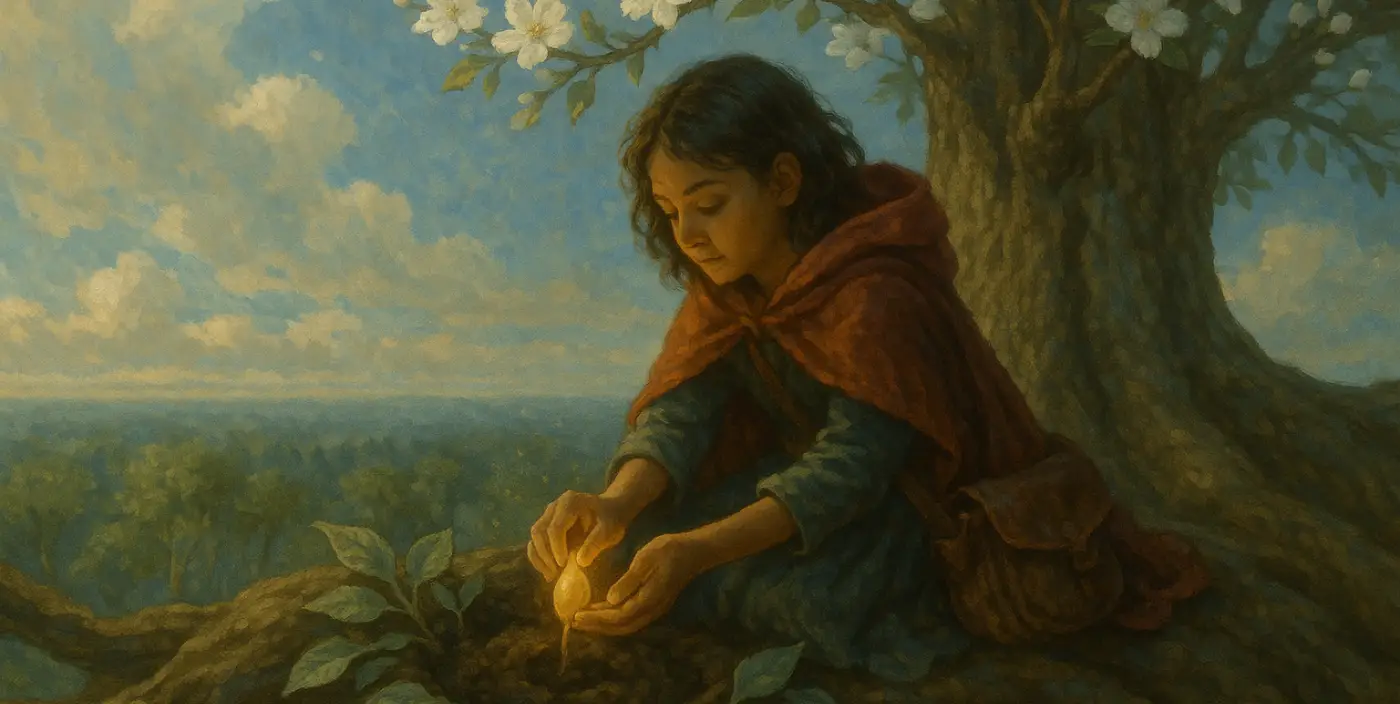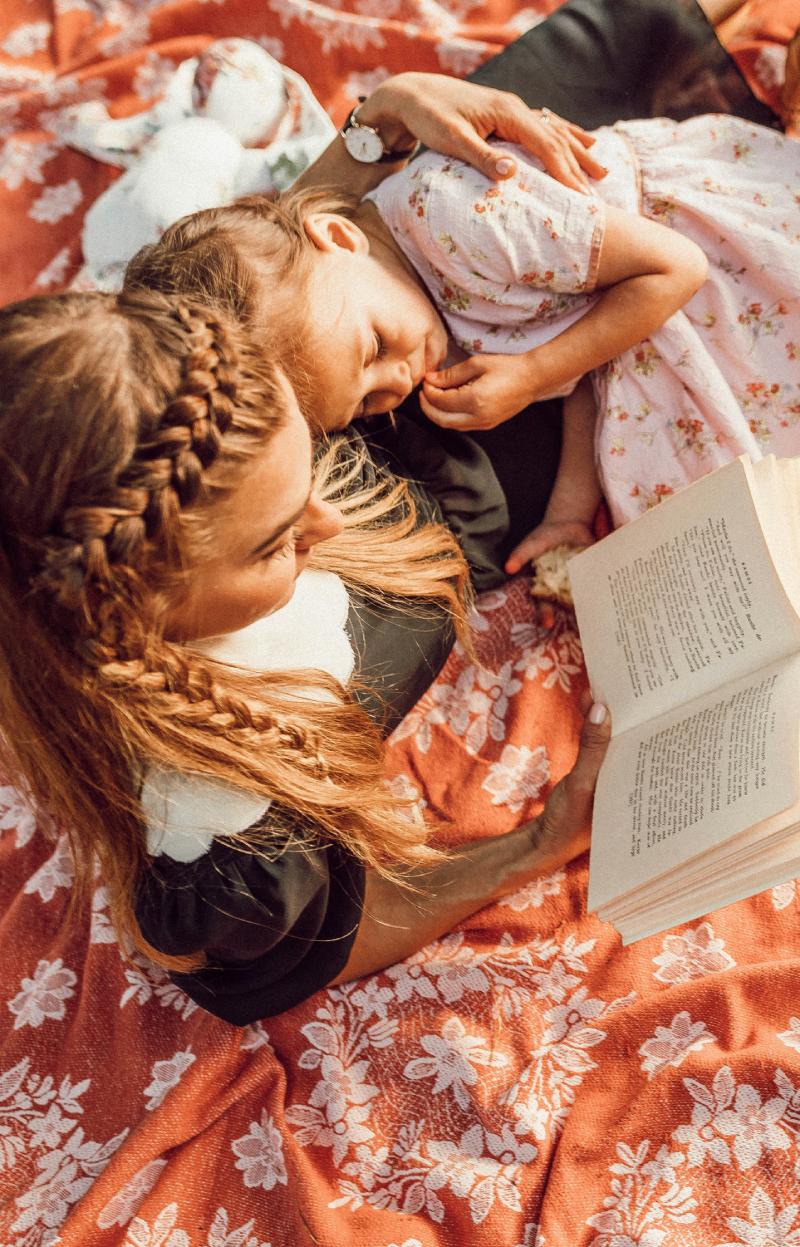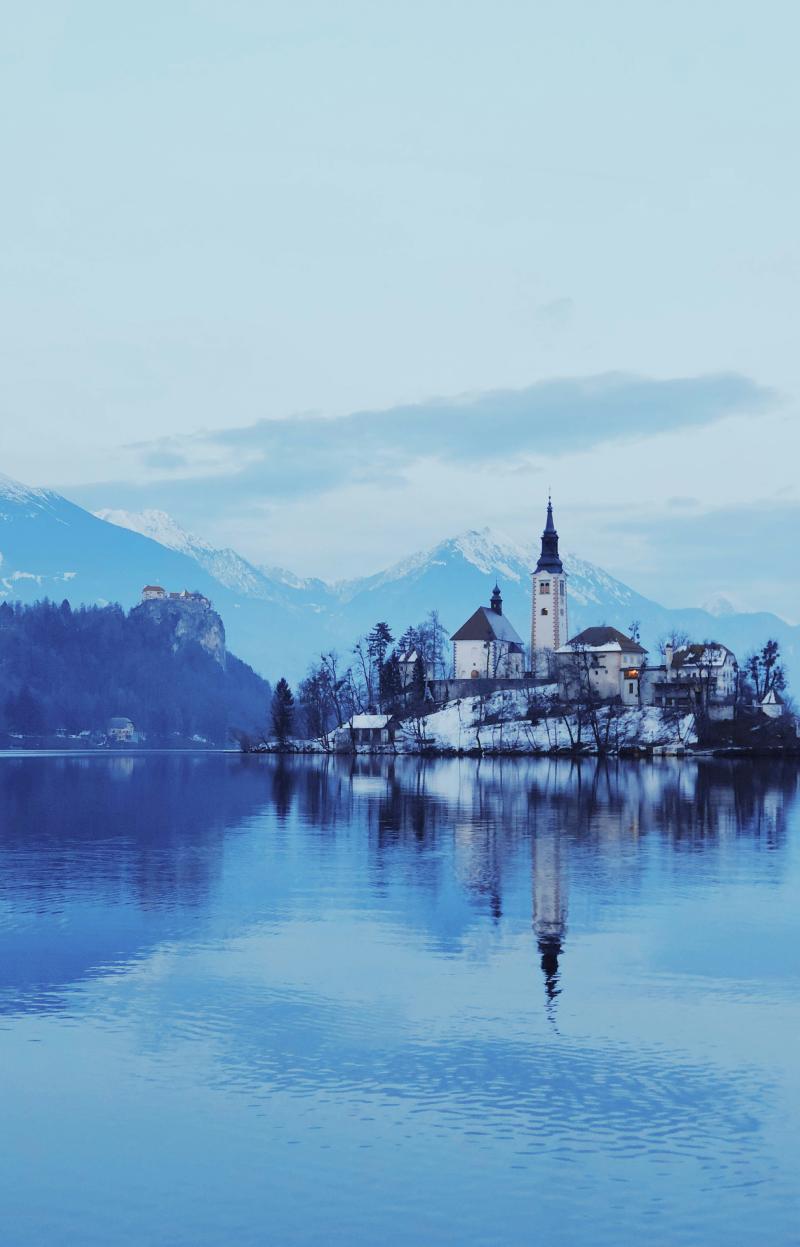Safa and The Last Seed
Once, in a forest held in the hush of perpetual winter, Spring was but a rumor. The branches of the trees reached out like brittle fingers, bare and unmoving, as though even the idea of bloom had long since fled. Rivers, robbed of their sparkle, trickled dully beneath a skin of frost. Birds curled into themselves, suspended in dreams stitched from memory, while the sky wore only gray.
High above the sleeping canopy, in a treehouse nestled between the shoulders of an ancient oak, lived a girl named Safa. She had grown up in this quiet world, cradled by wind and starlight, but something in her, perhaps memory, perhaps instinct, told her this was not how things were meant to be. The world, she believed, had simply forgotten how to wake.
One morning, as she unearthed a patch of soil beneath her treehouse in search of roots for tea, Safa discovered something strange: a silken pouch, sewn from thread-fine vines, soft as spiderweb. Nestled within it, warm despite the chill, was a single golden seed. Attached to the pouch was a note written in looping script that shimmered faintly, as if breathing:
“Plant me in the Garden of the Sky. Beware the Keeper of Cold.”
Safa stood for a long moment, the wind tugging at her cloak, the weight of the seed pressing gently against her palm. And then she made a decision.
She packed a satchel with honeyberry preserves, a compass carved from moonstone, and the small journal where she kept her questions. Without looking back, she descended the tree and stepped into the heart of the forest, following the subtle pulse of something ancient and waiting.
The Garden of the Sky, if it existed at all, was whispered to rest atop the tallest tree in the forest: a tree so immense it pierced the clouds and grew taller still. But to reach it, Safa would have to pass through the Cold Hollow, domain of the Keeper of Cold.
He had once been a guardian of balance; the spirit of winter, necessary and noble. But in the absence of Spring, he had become something else: not cruel, but endless. His realm was a place of stillness so deep, even sound was muffled.
Safa entered the Hollow with her shoulders straight and her breath visible in the frozen air. The trees here were etched in frost, their limbs delicate as glass. Each step she took sang with the chime of cracking ice. And then, he appeared.
The Keeper rose from a pool of shadow and snow, tall as sorrow, cloaked in a gown of drifting frost. His eyes gleamed with old sadness.
“Why do you walk, child of the greenless world?” he asked, voice slow as icicles forming.
“I’ve come to awaken Spring,” Safa said, clutching the seed close. “She’s been gone too long.”
“She is chaos,” the Keeper murmured. “Too loud, too bright, too full of ache and bloom. I have made the forest quiet. Safe.”
“But not alive,” Safa replied. “Safety is not the same as living.”
The Keeper extended a hand toward the seed, intending to snuff it out with a breath of winter. But Safa had wrapped it in all she had; her hope, her memories of warmth she had never known but deeply believed in, her dreams of a forest in bloom. The seed glowed. Not with light, but with life.
The Keeper recoiled, shaken not by the heat, but by the reminder of what he had once protected, not silence, but cycle. Not frost alone, but the breath before the thaw.
Without another word, Safa turned and ran.
She climbed the great tree; the one that reached the sky, each branch stretching upward like a question. The climb was long, and the air grew thin, but the seed grew warmer with each step. At the summit, the clouds parted like curtains. And nestled there, at the center of a hollow ringed with silver leaves, was soil; soft, dark, and waiting. Safa knelt. She placed the seed gently into the earth, and whispered, “It’s time.”
A tremor rippled through the tree, through the canopy, through the world. First came a single leaf, tender and green.
Then, as if the forest exhaled at last, came thousands.
Petals unfurled in midair. Rivers laughed in their beds. Birds awakened with new songs in their throats.
Far below, the Keeper of Cold stood at the edge of his Hollow. Snow melted at his feet. He did not fight it. Instead, he bowed his head and dissolved into mist; not defeated, but at peace, his task complete.
As for Safa, she returned to her treehouse, now wrapped in blossom and sunlight. She still kept her journal of questions, though it now held answers too ; soft ones, blooming slowly.
And every year, when the first shoots pushed through the thawing earth, the wind carried a whisper:
“Life always returns, if you dare to plant it.”
In Conversation with
the author
Has anything changed in your writing process or inspiration since your previous win?
Yes. I’ve become more comfortable with pauses; letting ideas take time instead of forcing them. I still write with curiosity, but now I focus less on trying to make something impressive and more on writing something that feels honest. I’m also paying closer attention to the small, quiet moments that often hold the heart of a story. My process hasn’t become faster, but it’s become clearer.
What inspired your story Safa and The Last Seed? Was there a specific moment, idea, or image that sparked it?
There wasn’t a single moment that sparked the story; it came together slowly, from a collection of thoughts and feelings I’d been carrying for a long time. I was thinking about cycles; how everything in nature changes, and how unnatural it feels when something gets stuck. I was also drawn to the idea of quiet strength: someone doing something small and simple, like planting a seed, and having it ripple into something much greater. Safa and the Last Seed grew from all of thaT, not from one flash of inspiration, but from something that had been quietly taking root in the background for a while.
What do you do when you get stuck while writing?
When I get stuck, I step away. I don’t try to force the words; instead, I give them space. I distract myself with other things: I might read, clean, go on walks, or just focus on everyday life. Sometimes the answer arrives quietly while I’m folding laundry or walking down the street. Other times, it takes weeks, or months, or even a year, but it always comes, eventually. I’ve learned to trust that ideas have their own rhythm. Letting the story breathe often brings me closer to it than struggling at a blank page ever could.
What makes a story feel "true" to you, even if it's made-up or magical?
When a story touches something timeless; love, loss, hope, wonder, it feels true, no matter how fantastical the setting is. A tree that grows stars or a talking fox can feel just as real as any person, if their feelings or decisions echo something honest. For me, truth in a story often comes through small details: the way a character hesitates before speaking, the silence after a difficult choice, the way someone remembers something forgotten. It’s not about facts, it’s about emotional gravity. When a story stays with me after I’ve finished reading it, I know it carried some truth.
Author:
Zehna ImranChallenge:
Blossom TalesYear:
2025Winner:
1st PlaceCategory:
Date:
May 28, 2025





